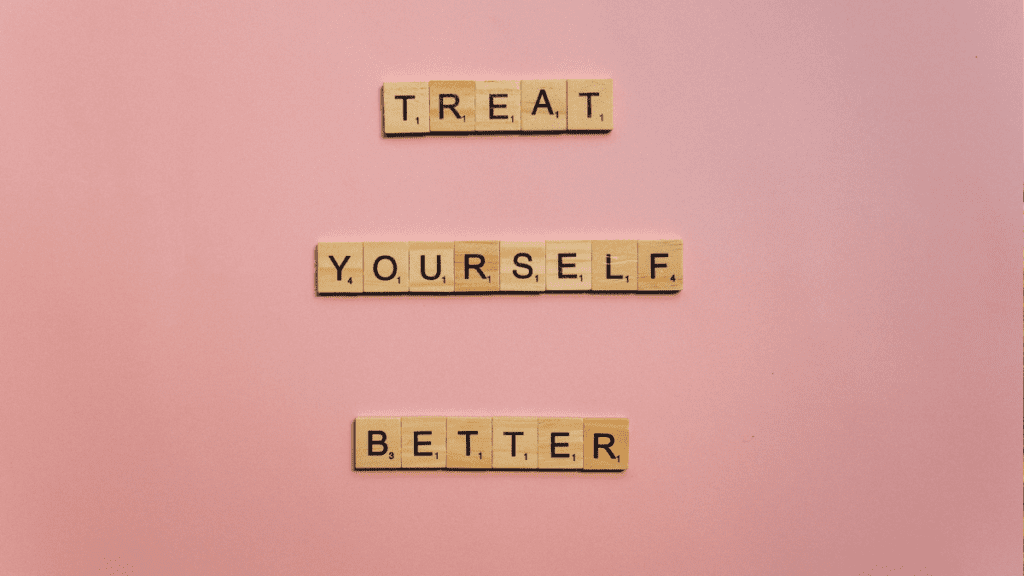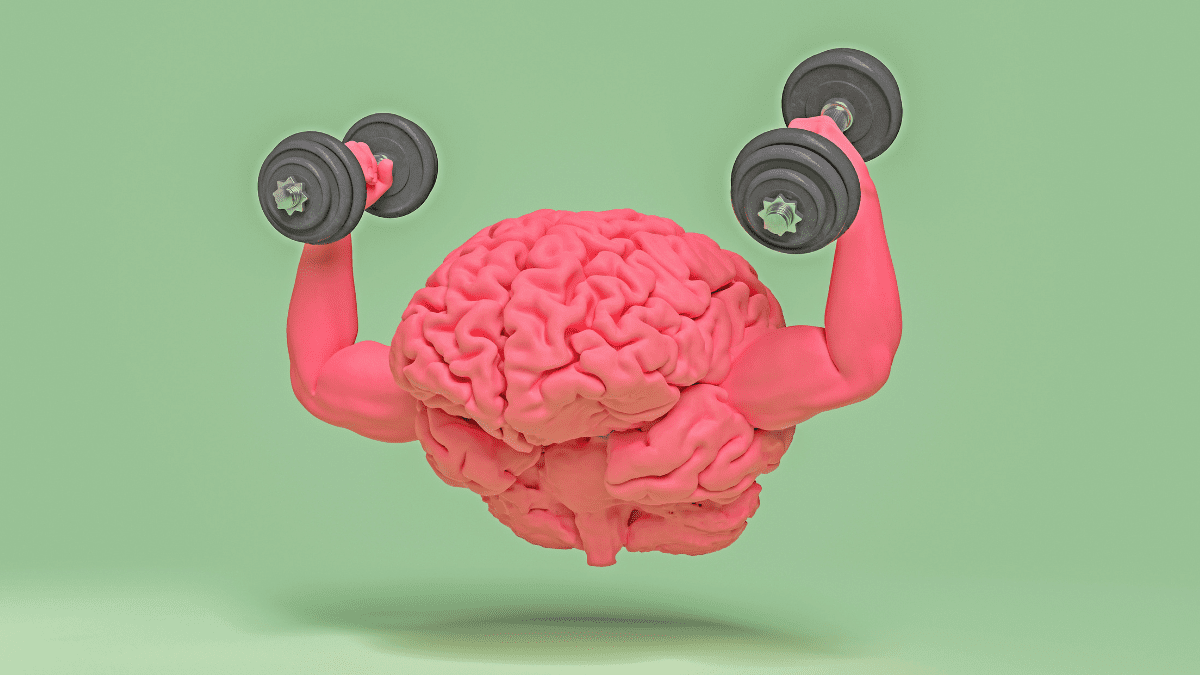Mindful Self Compassion App: How to Feel Amazing Again
The mindful self compassion app is more than a tool. It’s a quiet path back to you—designed to help you feel whole, present, and human again.

In This Article
- What Is A Mindful Self Compassion App And Why Does It Matter?
- How A Mindful Self Compassion App Supports Your Daily Life
- What To Expect When You Start Using A Mindful Self Compassion App
- Mindful Self Compassion App — FAQ
- How Real People Use Mindful Self Compassion Apps To Heal
- Choosing A Mindful Self Compassion App That Feels Right
- Conclusion: A Quiet Return To Yourself
What Is A Mindful Self Compassion App And Why Does It Matter?
You don’t need to try harder to be okay. You need space to be human. A mindful self compassion app offers that space. Not as a fix, but as a gentle return to yourself. In a world that often tells you to toughen up or move on, self-compassion invites you to soften. It’s not weakness. It’s wisdom.
These apps are designed to help you build that inner kindness—slowly, steadily, and with guidance you can trust. Whether you’re feeling burned out, anxious, or simply disconnected, they meet you where you are. And they offer something deeper than calm: they help you feel whole again.
In this article, you’ll learn what a mindful self compassion app really is—and why it’s more than just another wellness trend. We’ll explore how it works, when to use it, and how to choose one that fits your life.
There’s no perfect way to begin.
But starting here is more than enough.
How A Mindful Self Compassion App Supports Your Daily Life
What Happens When You Feel Overwhelmed Or Unworthy?
Even with a full calendar and a steady routine, emotional waves still rise.
Often, they hit hardest when you’re alone.
Fortunately, a mindful self compassion app offers quiet support.
Instead of spiraling or shutting down, you can turn inward—gently.
These apps guide you through moments of anxiety or self-doubt with clarity.
To improve your emotional grounding, try features like:
- Guided audio practices to ease your nervous system
- Short check-ins that create space for emotional awareness
- Self-kindness prompts to shift your inner dialogue
Because the best way to regulate these intense moments is to meet them early—with curiosity, not judgment.
Can A Mindful Self Compassion App Fit Into A Busy Life?
Yes. In fact, that’s what it’s designed for.
Even if you have only five minutes, it counts.
Because most apps include micro-practices, you don’t need to carve out a full hour.
Here’s a simple rhythm that works for many:
- Morning reset: one-minute breath or self-kindness intention
- Midday check-in: a quick scan or emotional journal
- Evening reflection: gentle gratitude or loving-kindness meditation
To improve your consistency, schedule reminders inside the app.
This removes friction and builds emotional presence into your day.
What Practices Work Best With The App?
Not every technique works for everyone.
But certain rituals pair beautifully with app use.
Try starting with:
- Breathwork while walking
- Self-compassion journaling before bed
- Mirror affirmations with headphones in
Even better, combine practices.
For example, follow a guided meditation and then journal about what surfaced.
Over time, this layering deepens emotional awareness.
Mini Checklist: Build A Simple Compassion Routine
- Set your intention in the morning
- Choose one practice from the app daily
- Reflect on how it felt—without judgment
- Adjust the next day with compassion
When you treat emotional care as essential—not optional—it changes everything.
One powerful benefit of using a mindful self compassion app is how it strengthens compassion-based mindfulness for anxiety, which supports calmer and more balanced emotional responses.
What To Expect When You Start Using A Mindful Self Compassion App
What Tools Are Included Inside A Mindful Self Compassion App?
Every app is different. But most offer a rich mix of features that invite you to slow down, feel, and reconnect.
To improve your experience from day one, look for tools like:
- Guided audio meditations focused on self-kindness
- Emotional journaling prompts to process inner dialogue
- Progress tracking to witness your growth
- Daily reflections that meet you where you are
The best way to begin is by choosing one tool that feels approachable.
Start small. Let it lead you inward.
Remember: It’s not about mastering the app.
It’s about softening toward yourself—even for five minutes.
Is A Mindful Self Compassion App Beginner-Friendly?
Absolutely.
Many of these apps are built for people who’ve never meditated before.
Even if you’ve struggled with mindfulness in the past, this is different.
Instead of pushing for peace, it invites presence through warmth.
Here’s why it works:
- Practices are short and digestible
- No background in spirituality or meditation is required
- Language is human, not clinical or overly philosophical
- It emphasizes feeling, not performing
To improve accessibility, many apps also offer beginner paths and intro series.
This helps you build a practice gently, at your own pace.
How Do These Apps Personalize The Experience For You?
Not everyone needs the same kind of support.
That’s why the best mindful self compassion apps adjust to your rhythms.
Some allow you to set emotional goals. Others send daily reminders based on your mood check-ins.
Many offer:
- Adaptive meditations depending on your needs
- Custom playlists to revisit your favorite practices
- Feedback options to reflect on how sessions felt
To improve alignment with your real life, choose an app that asks how you feel—before it tells you what to do.

Mini Checklist: What To Look For In Your First Week
- Did I feel safe and seen during the practice?
- Was the app’s guidance clear and compassionate?
- Am I more aware of how I speak to myself?
- Do I feel supported, even in small ways?
If even one of these answers is yes, you’re on the right path.
For those just starting out, a mindful self compassion app can offer the perfect entry point into self compassion meditation for beginners, with simple tools to build emotional resilience.
Mindful Self Compassion App — FAQ
What Is The Best Mindful Self Compassion App For Daily Emotional Support?
For instance, the I Am – Daily Affirmations app is perfect if you need gentle emotional encouragement throughout the day. Because it delivers powerful “I am” statements, it can help shift your mindset—one moment at a time.
Meanwhile, the Self-Compassion App offers a more guided experience. Since it’s based on the work of Dr. Kristin Neff, it includes evidence-based tools like journaling prompts and brief self-kindness exercises.
Additionally, Insight Timer gives you access to thousands of meditations, soothing music, and compassion-based talks. So, if you prefer audio support or daily check-ins, it’s a strong choice.
Finally, Smiling Mind is a great fit for those who need structure. Although it’s simple, it’s deeply effective—especially if you’re trying to build consistent emotional habits.
How Often Should I Use A Mindful Self Compassion App To See Real Change?
Ideally, you’ll want to use the app at least 4 to 5 times per week.
Even if the sessions are short, regular use builds lasting emotional shifts.
First, start small. Try a 1–2 minute affirmation each morning using I Am.
Next, use Insight Timer for a midday pause or self-kindness meditation.
Later, close the day with a reflection using Smiling Mind or a journal prompt in the Self-Compassion App.
Can Beginners Use These Self Compassion Apps Without Feeling Overwhelmed?
Yes, definitely. These apps are designed for real life—not perfection.
Although everyone’s journey is different, most beginners find comfort in how accessible these tools feel.
To begin gently, try I Am – Daily Affirmations for subtle daily encouragement.
Then, when you’re ready, explore a short audio session on Insight Timer or a structured check-in with Smiling Mind.
How Real People Use Mindful Self Compassion Apps To Heal
Are The Results Of Using A Mindful Self Compassion App Backed By Research?
Yes — and the evidence is deeply encouraging.
Again and again, research shows that self-compassion can create real emotional change.
In fact, studies reveal that using a mindful self compassion app consistently can help:
- Lower anxiety and reduce depression
- Improve emotional resilience over time
- Interrupt cycles of self-criticism
- Enhance overall well-being and self-trust
As a result, many therapists now recommend these apps as daily support tools.
Even better, they work alongside traditional therapy, not in place of it.
To improve your results, begin with small daily practices.
Eventually, that consistency becomes your anchor.
The best way to feel the shift?
Stay present with the process, not just the outcome.
What Do Real People Say About Their Journey?
Although the path is personal, the themes are often shared.
Many people say the experience feels quietly transformative.
For instance, here’s what users often reflect after a few weeks:
- “I don’t spiral the way I used to. I breathe instead.”
- “I’m learning to treat myself like someone I love.”
- “I finally feel like my emotions have a safe place to land.”
Because the app offers compassion in real-time, it often becomes a steady companion.
Even when you feel lost, it reminds you—you are not alone.
To improve your awareness, consider journaling after each session.
That way, you notice what’s shifting inside.
Over time, these small changes create a deeper sense of emotional safety.
How Does A Mindful Self Compassion App Build Lasting Self-Love?
Although self-love might feel out of reach at first, it begins with how you respond to yourself.
Each moment of gentleness lays the foundation.
Over time, the repetition of compassionate practice builds new patterns.
As a result, you may begin to:
- Soften when you feel triggered
- Pause before judging yourself
- Stay with difficult feelings instead of escaping
- Trust yourself even when things go wrong
Eventually, your inner voice starts to change.
It becomes warmer, steadier, and more forgiving.
To improve this process, try pairing your app use with voice notes or evening reflection.
That way, you can track the emotional threads and patterns of healing.

Mini Checklist: Signs Of Emotional Healing
- Your inner voice becomes softer, more compassionate.
- A quiet sense of safety begins to settle in your body.
- Emotional discomfort no longer feels like something you have to run from.
- A deep knowing emerges—you are already worthy, just as you are.
Even though the growth may feel subtle, it’s deeply real.
Because healing often happens quietly—but completely.
According to current research, one of the key benefits of self compassion is how it supports long-term emotional healing by gently rewiring self-perception and inner dialogue.
Choosing A Mindful Self Compassion App That Feels Right
Which Mindful Self Compassion Apps Are Worth Exploring?
Choosing the right app can feel overwhelming.
However, the most powerful tools are often the simplest.
Instead of chasing trends, look for apps grounded in science and empathy.
That way, you’re choosing something that truly supports your healing.
Now here are a few that consistently rise to the top:
- I Am – Daily Affirmations – This app delivers carefully crafted “I am” affirmations throughout your day. Subtle, powerful, and beautifully simple.
- Insight Timer – A rich collection of guided meditations, teacher talks, and soothing music. Ideal for building daily emotional rituals.
- Self-Compassion App – Built around the work of Dr. Kristin Neff, this app focuses on teaching the core practices of mindful self-compassion. Includes reflective journaling, short meditations, and mini lessons that walk you through emotional healing step by step.
- Smiling Mind – Created with simplicity and structure in mind, this app is perfect for building daily check-ins. Great for beginners or families.
Although each has a different feel, they all center on self-kindness.
Choose the one that speaks to your heart—and your lifestyle.
To improve your experience, try a few sessions before committing.
What Should You Look For Before Downloading One?
Before you tap install, pause and ask yourself: What do I need right now?
Whether it’s emotional support or daily grounding, clarity helps.
The best way to choose well is to look for:
- Simple, human-centered design
- Voices or guides that feel safe
- Flexible practices (5–20 minutes)
- Emotional check-ins or mood tracking
In addition, trust your instinct.
If an app feels calming from the first screen, it’s probably a good fit.
To improve long-term use, select one that offers both structure and softness.
Mini Checklist: Before You Commit
- Does the app speak to your emotional needs?
- Are the practices accessible and flexible?
- Is the tone kind, not clinical or forced?
- Do you feel seen—not just “fixed”?
When in doubt, start small.
Your nervous system will tell you if it’s right.
Are There Free Mindful Self Compassion Apps That Truly Help?
Absolutely.
You don’t need to spend money to access real healing.
While premium apps offer more features, many free versions are genuinely powerful.
In fact, some users report greater impact from simpler tools—especially when paired with intention.
To improve your practice without cost, begin with one of these:
- Insight Timer’s free compassion series
- Smiling Mind’s emotional well-being path
- Free beginner tracks in the Self-Compassion App
Eventually, you might want to upgrade—but you don’t need to rush.
Start with what’s available.
Stay with what feels true.
Conclusion: A Quiet Return To Yourself
Every day, life pulls you in countless directions.
Yet even in the noise, there is still a place within you that’s steady.
That’s where a mindful self compassion app can meet you.
Not to change who you are—but to help you return to yourself.
Throughout this guide, you’ve learned how these tools offer more than calm.
They create space.
They offer you permission to pause.
And most of all, they help you rebuild trust with your own inner voice.
As a result, you can meet yourself with less pressure—and more presence.
Even during emotional lows, you now have a way to anchor yourself.
To begin, try these simple steps:
- First, choose one app that feels warm and intuitive
- Then, explore a short practice each morning or evening
- Next, notice how you feel afterward—without judgment
- Over time, reflect through journaling or quiet observation
- Above all, let your practice be honest—not perfect
Finally, if you’re feeling ready to explore more, take a look at Mindfulness Apps for Mental Well-being: The Ultimate Guide.
It’s a powerful next step for deepening your practice.
Because sometimes, all you need is a small doorway inward.
And sometimes, that doorway begins with a single breath.
The truth is: your softness is not a weakness.
It’s the quiet strength that brings you back home.
Created by Lili Vu, holistic health & nutrition coach in training. Deeply passionate about mind-body healing, nourishment, and intentional living — practices I’ve lived, tested, and continue to grow through. Embracing my ADHD and supporting my partner through a brain attack transformed how I understand the nervous system, resilience, and healing. I explore holistic well-being through yoga, plant-based nutrition, gut and hormone health, trauma recovery, and mindful habit change — all rooted in my personal healing journey. 🌿







